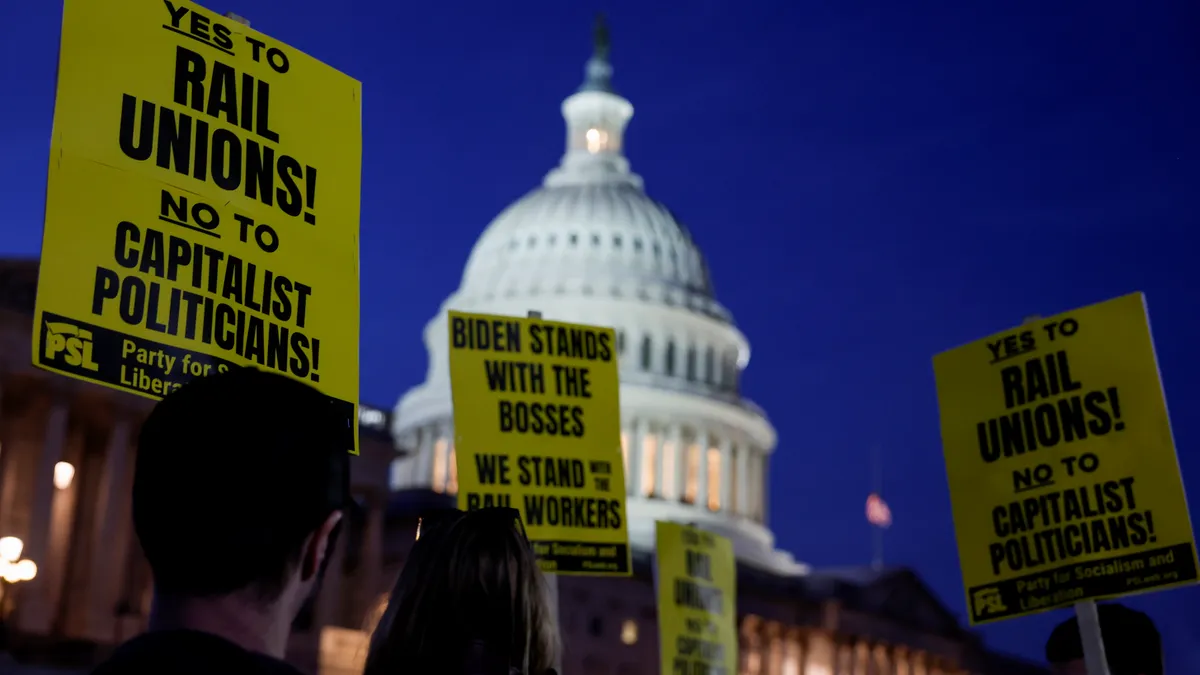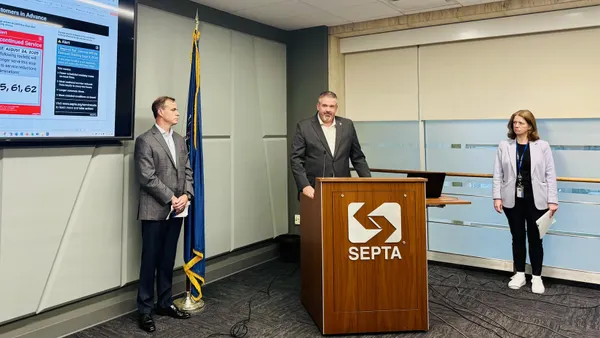House lawmakers approved a legislative package Wednesday that averts an economically damaging rail strike or lockout while still keeping the door open for workers to secure paid sick leave.
Legislators passed two resolutions: One forces four holdout unions to accept their rejected contract as written, which includes the biggest wage increase in decades, plus expanded health coverage. The other amends the tentative agreement to include seven days of sick leave, which workers had pushed for, arguing they can’t take time off in the case of a short-term illness.
Paid sick leave emerged as a major sticking point in negotiations between railroaders and carriers, with the pandemic supercharging labor efforts to secure more benefits. Railroads have resisted calls to add paid sick leave during the bargaining process, noting that the Biden administration’s presidential emergency board declined to include sick days in its final recommendations.
The House approved the measure that would impose the tentative agreement as written, voting 290-137. The vote was tighter on the resolution to add paid sick leave, with lawmakers narrowly approving it 221-207.
The votes come just two days after President Joe Biden urged congressional intervention, saying a resolution was not possible at the bargaining table. The president warned that “a rail shutdown would devastate our economy” and called on lawmakers to approve a bill well in advance of the Dec. 9 deadline.
The two measures still need Senate approval before they can head to the president’s desk for his signature. Democrats are walking a fine line between supporting labor while still avoiding a strike or lockout expected to cost the economy $2 billion a day.
“By sending it as a separate resolution, we are giving the Senate the ability to take it up in addition to the main bill,” Rep. Jim McGovern, head of the House Rules Committee, said Wednesday morning on the House floor. “If they don't have the votes to pass it, they can still send the bill averting a rail strike straight to the president.”
Senate Majority Leader Chuck Schumer told reporters Tuesday that he and Minority Leader Mitch McConnell agreed to “resolve this rail shutdown as quickly as possible.” But the fate of the supplemental measure guaranteeing paid leave is uncertain in the divided upper chamber.
Labor leaders, which had called for Congress to stay out of the dispute, quickly rallied behind the move to add paid sick leave.
“Right now, every Member of Congress has an opportunity to be a champion of the working class,” Greg Regan and Shari Semelsberger, president and secretary-treasurer of the Transportation Trades Department of the AFL-CIO, said in a joint statement. “We implore these elected leaders to stand with essential workers who are the backbone of our nation’s supply chain.”
A shutdown of the freight rail system would significantly disrupt shipments of critical commodities and deal another blow to the nation’s already fragile supply chains. Biden said as many as 765,000 workers could be out of work within two weeks as industries would be forced to pause production.
A strike or lockout would also come as truck, and barge capacity remains tight, making it more difficult for companies to enact contingency plans.
“There is zero elasticity right now in transportation,” Ian Jefferies, president and CEO of the Association of American Railroads, said in a media call Tuesday. “So it's not as if contingency planning can just quickly pivot and shift that volume.”
Producers of fertilizer and other products with potentially hazardous materials say they expect service to be limited even before the Dec. 9 deadline, making it essential for Congress to approve legislation as quickly as possible.
“For us, the strike effectively starts this weekend,” said American Petroleum Institute President and CEO Mike Sommers.












